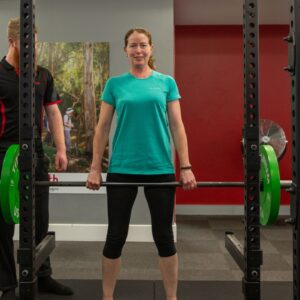The Importance of Managing Injuries
Regular physical activity is vital for good physical, social and mental health. While there is a risk of injury with any type of physical activity, the benefits of staying active far outweigh the risks.
The first thing you should do when encountering an injury is seek professional advice. You can obtain information and advice about exercising safely from a sports medicine doctor, physiotherapist or an exercise physiologist. They will be able to provide you with exercise parameters. A comprehensive assessment will often show a level of weakness, motor control reduction, stiffness or reduction in mobility for example. For this, exercise is prescribed to treat the cause, and aid in the treatment of pain.
For acute injuries, deconditioning or a decrease in muscle strength occurs almost immediately afterwards. For long standing pain or chronic conditions, this can be a gradual reduction, and may go unnoticed until you try to resume the activities. In both scenarios your tissue tolerance has reduced. That is the ability for the muscles and soft tissues to withstand the load of the activity, whether it’s a run or a long walk, which can result in pain or further injury.
A key factor to dealing with injuries is to work around it by finding variations and alternatives that will not affect the injured site. This will avoid falling into the trap of being sedentary and unmotivated.
Research has shown that those who stay positive throughout their rehabilitation will increase the rate of recovery. Therefore, instead of using it as an excuse or as an obstacle, use the time to focus on any weaknesses you may have.
Listen to your body when doing your rehabilitation. Try to avoid or modify any exercise that causes you pain or discomfort. Don’t ignore your body’s signals of fatigue, discomfort and pain. Remember that injuries need rest and trying to ‘work through’ the pain may cause more damage to soft muscle tissue and delay the healing process. Make sure you have at least one recovery day, preferably two, every week.
Exercise can be a powerful treatment in reducing pain if it is managed well, it can improve pain levels, improve tissue healing and stimulate muscle growth which reduces pain.
Often during an injury pain can change the way we move, to avoid the pain or when there is fear of movement. This can often last long after the actual injury has resolved, and the affected tissues have healed. In this case restoring pain free movement, and utilising exercises to build the correct movement patterns and strength of muscles can be progressed to avoid injury reoccurring and normal pain free movement established again.
Exercise is a form of treatment at many stages of injury, after an injury has been successfully managed with rehabilitation and other interventions it’s important to maintain strength and aim to improve this greater than your previous level. Pain free may just be the start, improving strength, mobility and control to improve your function, ability to continue to train at 100% is the goal.
References
Do you have any questions?
- Call us on (03) 9857 0644 or (07) 3505 1494 (Paddington)
- Email us at admin@mdhealth.com.au
- Check out our other blog posts here
Our clinical staff would be happy to have chat if you have any questions.
Take the first step to a healthier you!
Would you prefer for someone to contact you regarding booking your Initial Physiotherapy appointment, Initial Exercise Physiology, Initial Osteopathy session or FREE Full Body Assessment*?
Or do you have any other enquiry about our services at MD Health?
Please fill in this form and someone from MD Health will be in touch with you soon.
Alternatively please call us on 03 9857 0644 (Kew East), 03 9842 6696 (Templestowe), 03 8683 9442 (Carlton North) or 07 3505 1494 (Paddington) to book now!
*Please note only the Full Body Assessment is a FREE service. The Full Body Assessment is for new clients at MD Health or returning clients who haven’t been in for 6 months or longer who intend to particpiate in our 13 Week Clinical Pilates Program**.
For all new clients who wish to come in for a one-off, casual or adhoc basis for Physiotherapy or Exercise Physiology the Initial Physiotherapy or Initial Exercise Physiology appointment is a paid service.
** The 13 Week Clinical Pilates Program at MD Health is not a lock in contract and you are not required to attend for the full 13 weeks if you do not wish.
This site is protected by reCAPTCHA and the Google Privacy Policy and Terms of Service apply.




